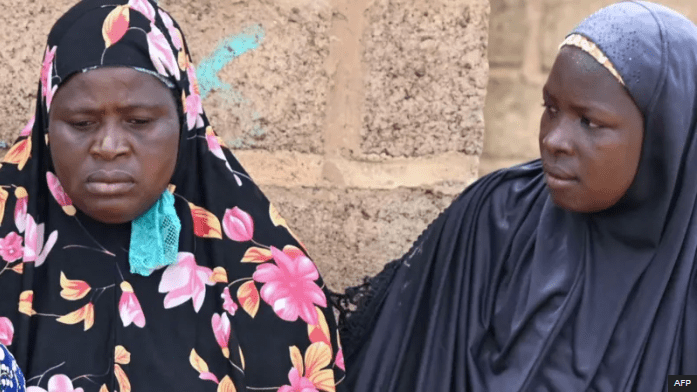
Islamist insurgents in Burkina Faso have stepped up attacks on civilians, carrying out door-to-door killings, slitting throats and targeting Christian worshippers, a report by campaign group Human Rights Watch (HRW) says.
It quoted data showing that more than 6,000 deaths, including around 1,000 civilians killed by Islamists insurgents, have been recorded in the West African state in the first eight months of the year.
Burkina Faso has been battling jihadist groups, including those linked to al-Qaeda and the Islamic State (IS), since 2016.
When Captain Ibrahim Traoré seized power in a coup two years ago, he pledged to improve the dire security situation within “two to three months”. However, the violence has only escalated.
Released on Wednesday, HRW’s report documents gruesome atrocities committed by jihadists.
Attacks are often carried out in retaliation against communities who have refused to join the ranks of the jihadists or have been accused of collaborating with government troops, HRW said.
A February attack on church worshippers in the north-eastern village of Essakane left 12 dead.
“I saw a huge pool of blood and traces of blood all over the church, as well as bullet marks on the benches,” one survivor, who lost his brother at the hands of the assailants, was quoted as saying.
The Islamic State in the Greater Sahara (ISGS), one of the key militant groups in Burkina Faso, claimed responsibility for the attack.
Al-Qaeda linked group Jama’at Nusrat al-Islam wal-Muslimin (JNIM) fighters were also highlighted several times in the report.
“The jihadists opened fire in the village indiscriminately,” said a 35-year-old farmer who witnessed an attack by alleged JNIM fighters in the town of Sindo, Hauts-Bassins region, on June 11.
“We found bodies in the village, on the outskirts and in the bush.… Some were shot, others had their throats slit,” another resident said.
Witnesses also said that in June, militants stormed the town of Mansila after killing dozens of soldiers at an army base nearby. The locals told HRW that jihadists went door-to-door, ordering people out of their homes and killing men they accused of collaborating with the army.
HRW said that Burkina Faso’s army and civilian groups affiliated to it have also committed atrocities during operations against the insurgents.
A previous report from the watchdog accused the Burkinabè military of massacring at least 223 civilians in February.
Large swathes of the West African country are run by the jihadist groups, leaving the government in control of just roughly half of nation.
Quoted in HRW’s report, the Armed Conflict Location and Event Data Project (ACLED) has recorded more than 6,000 deaths in the first eight months of the year, including around 1,000 civilians killed by jihadist groups.
These figures do not include the 100 to 400 civilians killed in an attack on August 24 in the northern town of Barsalogho, HRW said.
JNIM claimed responsibility for the massacre.
Experts told the BBC that the scale of the Barsalogho attack points to a larger problem in the Burkina Faso’s security architecture.
“The country is yet to come up with a security strategy that can defend not just the people, but also its territorial integrity,” said David Otto, an international defence and security analyst.
Ryan Cummings, who has co-written a book on the Islamic State in Africa, said: “We often hear reports by some commanders in the Burkina Faso military that they have less ammunition than what the insurgents have access to, and that’s a worrying development.”
Burkina Faso has pivoted towards Russia for military aid after breaking its decades-old alliance with former colonial power France.
It has also formed an alliance with two other pro-Russian juntas in the region – Mali and Niger – to fight the jihadists.
Mr Otto says the three juntas have still been unable to consolidate their power, making it difficult for them to focus on the jihadist threat.
Mr Cummings said that successive governments had not done enough to professionalise Burkina Faso’s armed forces, leaving troops without adequate training and weapons.
The insurgents operate across the region, and JNIM claimed responsibility for an assault on Mali’s capital, Bamako, on Tuesday.
A military training school and the country’s main airport were attacked.
The army acknowledged suffering losses but did not specify the number of casualties.








